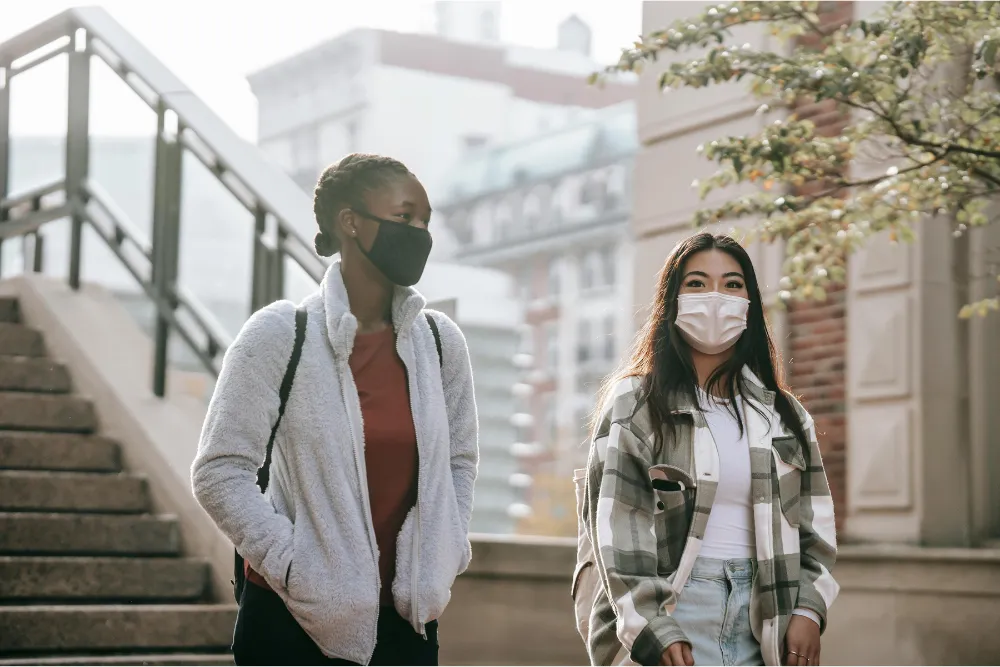Introduction
People who work in the Division of Health Sciences and students often want to know, “What kinds of jobs are available in this field?” This field is huge, varied, and incredibly important for improving health at all levels. Many jobs in health sciences involve taking care of people, science, and technology. Some of these careers may require working with patients or studying public health.
If you want to work in healthcare but don’t know where to start, learning more about this sector can help you figure it out. This article will talk about many different health science occupations, the skills you need for them, the best routes to get an education, and what the future holds for health sciences.
Getting to know the Department of Health Sciences

Before you ask, “What jobs are in the Division of Health Sciences?” you should know what it is. Health sciences include biology, medicine, public health, nursing, psychology, nutrition, and other areas that deal with health. Not only does it assist people get well, but it also helps with research, education, prevention, and health in general.
There are many different areas of study in health sciences, so students can select a job that fits what they like. For example, they could help patients, do research in a lab, or design health initiatives for the community.
Important Career Paths in Health Sciences
It’s evident that the Division of Health Sciences has a lot of different jobs to offer. Some of the most common jobs are:
Nursing
Nurses play a vital role in emphysema care within the NYC Health system. They not only assist doctors with treatment plans but also monitor patients’ breathing, administer prescribed medications, and provide education on lifestyle changes such as quitting smoking and using inhalers correctly. Their support is crucial in managing emphysema symptoms, ensuring patients understand oxygen therapy, pulmonary rehabilitation, and other treatments offered by NYC Health. Nursing careers in this field, such as respiratory nurse specialists, critical care nurses, and nurse practitioners, bring both job security and personal satisfaction.
People who work in the health care field

The main purpose of all public health jobs is to stop diseases and assist people get better. Some of the people who work in this field are epidemiologists, health educators, and community health coordinators.To explore this more, you may check our complete write-up on What Services Does Health threetrees com vn Provide?
People who work in medical labs and undertake research
People in New York City who are sick need a speedy and correct division of health sciences diagnosis so they can obtain the necessary care. A number of experienced medical laboratory scientists work hard behind the scenes to help doctors with this. They use advanced testing procedures to carefully and accurately check the blood, tissues, and bacteria in each case of emphysema.
Therapists for work and health problems
These professionals help persons who have been hurt, had surgery, or have a chronic condition get their capacity to move around, be independent, and enjoy life again.For further reading, visit our full guide on Does Corn Tortilla Nutrition Support a Healthy Diet?
Dietitians and nutritionists
Nutritionists help persons with special dietary needs plan their meals and get them to eat healthy foods. This job is very important for keeping people from getting diabetes, heart disease, or too much weight and division of health sciences.
Experts in health informatics

This career is getting bigger and combines technology and health care. Informatics professionals manage patient information, enhance electronic health records (EHRs), and assist healthcare providers in decision-making inside hospitals and clinics.
Services for mental health and psychology
A lot more people are starting to see that mental health is equally as important as physical health. Psychologists, counselors, and therapists can help people who are having trouble with stress, trauma, despair, and other problems in their lives.
Doctors and surgeons
Being a doctor is still a good job that pays well and is respected if you follow the most common path. Cardiologists, pediatricians, and internists find diseases, treat them, and stop them from spreading.
Things You Should Know Before You Work in Health Sciences
To accomplish effectively in the Division of Health Sciences, you need more than just a degree. People who work in health science need to be able to think critically, be understanding, talk to people, work effectively with others, and be open to change.
Digital health, telemedicine, and AI-powered tools are changing the way healthcare is delivered. At the same time, it’s becoming more and more important to know how to use technology.
Ways to Find Out About Health Sciences
Most jobs in this field require some kind of formal education, such as a doctorate or an associate’s degree. For instance:Jobs for New People: In most cases, you need a high school diploma or an associate’s degree to work as a medical assistant, lab technician, or health aide.Most of the time, you need a bachelor’s degree to work in public health, nursing, or nutrition.You require a master’s or doctoral degree to work as a doctor, psychologist, or therapist.For readers who want extra clarity, here’s our post on What Is Health Science and Why Should You Learn It?
Job openings and chances to go ahead
If you want to know what jobs are open, you’ll be happy to hear that the Division of Health Sciences is growing quickly. According to U.S. labor data, jobs in healthcare are expected to grow far faster than the average job over the next ten years.
There are a few reasons that are helping this growth happen:People getting older.Better medical tools.Putting greater stress on mental health.Preventive care programs
What drives you to want to work in the health sciences?
Health science careers don’t just give people employment security; they also make them feel good about themselves. People who work in this sector assist people live longer and better lives and make their communities healthier.
Health sciences can be the appropriate subject for you if you want a job that combines service with science, creativity with compassion, and fresh ideas with making a difference.
FAQs
Can you get a job in another country if you have a degree in health sciences?
You can get a job anywhere in the world with a degree in health sciences. People who work in health care can help repair problems with health care around the world and make systems better for public health and wellbeing at hospitals, research institutions, NGOs, and international organizations.
What kinds of social skills do you need to work in health science?
Professionals must possess the ability to collaborate effectively, resolve issues, adapt to novel circumstances, demonstrate leadership, exhibit emotional intelligence, and possess knowledge of many cultures. These talents help them gain trust, give good treatment, and make healthcare systems better.
Are there jobs in health science that don't include medicine?
Yes, there are occupations in health education, formulating health policy, reaching out to the community, selling drugs, coordinating research, promoting public health, and running a medical office that don't include working with patients. These jobs provide more for healthcare systems than just taking care of people.
What are the benefits of health science internships for students?
Internships give health sciences students real-world experience, useful skills, chances to meet new people, mentorship, and the possibility to try out different jobs. This helps them get ready for the real world.
Final thought
What kinds of jobs are there in the Division of Health Sciences? The answer is big and makes you want to do it. Nurses, therapists, computer scientists, and public health experts can find a lot more work.
Not only does working in health sciences benefit you in the future, but it also makes the world a better, stronger, and more resilient place.




